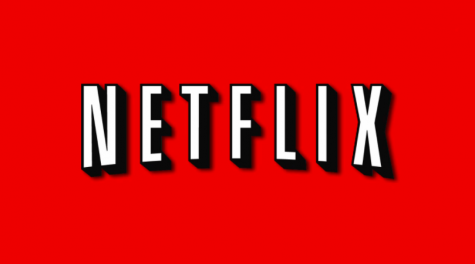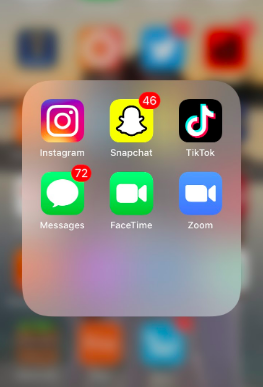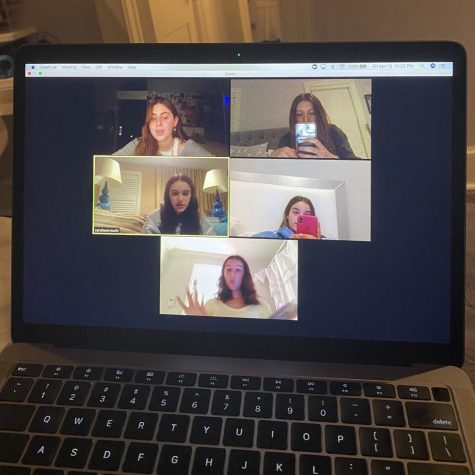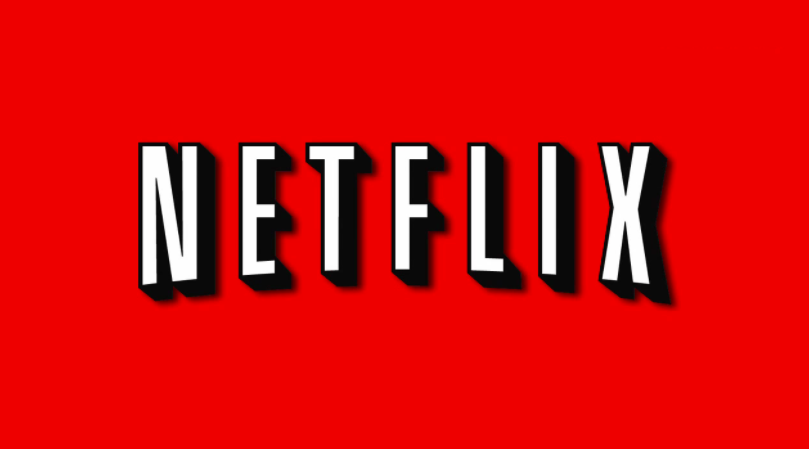Riveting documentary, “The Social Dilemma” challenges perceptions of social media
Graphic by Anastasia Thumser ’22 (images taken from the Internet and labeled for reuse)
As “The Social Dilemma” explains, social media apps such as these are run by human-made algorithms programmed to interpret user data and create a specific feed for each consumer.
As teenagers, we are often reminded of the trite adage that technology is taking over our lives. Complaints of academic stress, frustration over extracurriculars or even a measly headache will trigger an immediate parental response of “it’s that darn phone!” Although their remarks usually receive an eye roll on our part, Netflix’s documentary “The Social Dilemma” opened the enigmatic doors of America’s tech industry and convinced me that my darn phone might be at fault after all.
The documentary opens with a nervous Tristan Harris rehearsing a presentation for the Center for Humane Technology, which he co-founded in 2013 intending to regulate mass-produced personal devices and various social media platforms. A former Google employee, he left the company to focus on technological design ethicism and is referred to as the closest thing Silicon Valley has to a conscience. Harris’ versatile and pragmatic perspective is the driving force behind the documentary, as his interviews are incorporated with each subtopic touched upon in the film.
“The Social Dilemma” is a well-researched and meticulously edited production that includes a variety of perspectives regarding technology, such as former presidents of international networking companies, software designers, psychologists, teenagers and authors who loathe social media.
The documentary appeals to an audience of all ages by presenting intriguing yet unsettling realities we tend to overlook avid users of the Internet. For example, it introduces the notion that consumers are the product of technology, as companies become profitable by changing our individual perception and patterns of behavior. The quintessential “Jane Doe tagged you in a photo” notification is meant to appeal to human psyche; the deep-seated urge to connect with others is exploited by tech companies in order to feed our addiction.
Not only is the production factually informative, it also includes a creative storyline that empathizes with viewers and accentuates the message. Between segments of professional interviews, a fictitious depiction of a typical American family is seen through the lens of an alarming dependence on technology; a 13-year-old girl’s self esteem is shattered due to bodilly distortion caused by Instagram filters, and a teenage boy is compelled to use his smartphone through Big Brother-esque digital spies during an attempt to abstain from his devices. The more I watched, the more the creators convinced me that social media is no longer a useful tool, but a basis for manipulation.
The more I watched, the more the creators convinced me that social media is no longer a useful tool, but a basis for manipulation.
— Anastasia Thumser '22
Along with the film’s powerful precept and reputable interviewees, its subtle production elements left me engaged throughout its duration. Statistics, graphics and cartoons were well utilized to break up the interviews, its modern theme coordinated with the modern topic and the change in music conveyed conflicting emotions regarding the use of technology.
“The Social Dilemma” is easily one of the most skillfully produced shows Netflix has released in quite some time. Though I was sure the documentary would consist of nothing other than depreciation by technology-averse adults, I was left with an eye opening perspective of the tech industry and a newfound distrust in social media.
Rating: 4.5/5

Web Managing Editor Anastasia Thumser ’22 grew up as a writer, though the road wasn't easy.
“I kind of got off to a rough start in the class. It...




























































